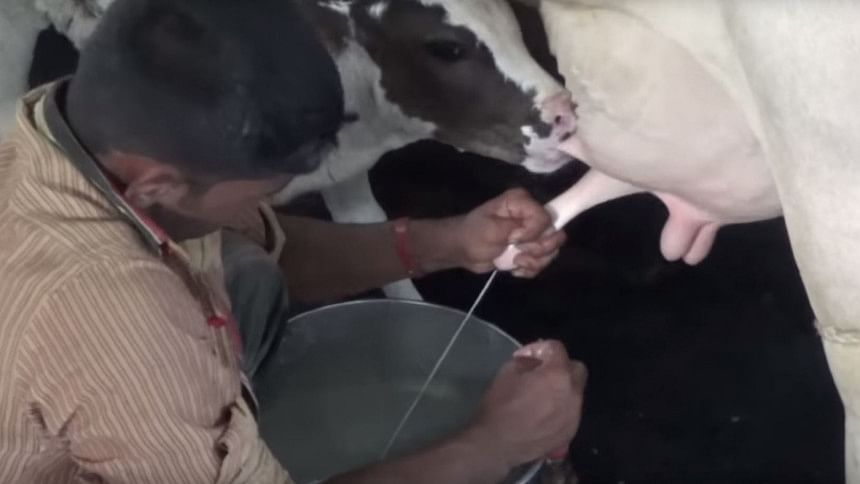HC worried over milk adulteration

The High Court yesterday issued a serious warning saying that the companies and individuals responsible for adulterating milk and curd, whoever they were, would not be spared and they must be punished.
None will be allowed to play ducks and drakes with people’s lives and health, as safe food is a fundamental right of people, the court said, asking, “How will the nation be built if health of its future generation is not sound?”
Making the observation, the HC sought reports detailing the names and relevant particulars of companies and persons responsible for adulterating raw cow milk, curd and fodder and the steps taken against them.
Bangladesh Food Safety Authority (BFSA) and Bangladesh Standards and Testing Institution (BSTI) have been ordered to submit separate reports to the court by June 23.
While hearing a suo moto rule, the court also asked Prof Shahnila Ferdousi, head of National Food Safety Laboratory (NFSL), to appear before it on May 21 along with the study report prepared by her organisation on raw cow milk.
The NFSL, in the study report, said it found the presence of excessive levels of lead and pesticides in raw cow milk, regular consumption of which may pose threats to human health.
The study also found a high level of chromium in fodder and excessive presence of pesticides, antibiotics and bacteria in raw cow milk.
Yesterday, HC bench of Justice Md Nazrul Islam Talukder and Justice KM Hafizul Alam passed the order when the court was holding a hearing on the suo moto rule issued by it on February 11.
On February 11, the bench asked Prof Shahnila to submit the study report to the court within 15 days. But she did not comply with the order, Deputy Attorney General AKM Amin Uddin Manik told The Daily Star.
During yesterday’s hearing, BFSA lawyer Mohammad Faridul Alam told the court that his client could not prepare the report on the companies and the individuals responsible for the adulteration of milk, curd and fodder as it required more time.
On May 8, the HC directed the BFSA to submit the report to it by yesterday.
Anti-Corruption Commission lawyer Syed Mamun Mahbub told the court that the commission could not take actions against those responsible as the BSTI and the BFSA did not hand over any reports to the commission.
The BFSA on May 8 submitted a test report to the HC and said it found harmful elements in most of the 190 samples of raw and packed liquid milk, curd, and fodder.
The samples were tested at the NFSL.
Of the 96 samples of the raw milk tested, 93 had total plate and coliform counts above the permissible limits, the BFSA report said, adding that salmonella was found in one sample.
It said according to a chemical analysis, lead was found above acceptable limits in five samples, aflatoxin in three samples, tetracycline in 10 samples, ciprofloxacin in one sample, and pesticide (endosulfan) in nine samples.
The report added that of the 31 (21 local and 10 imported) samples of the packed liquid milk, 17 had total plate and coliform counts at harmful levels.
Issuing the suo moto rule, the HC bench on February 11 had directed the ACC to enquire about the adulteration of milk, curd, and fodder and take legal action against those responsible.
The court also asked the BFSA to form a probe committee to identify in three months the individuals and businesses involved in adulteration of dairy products and fodder.
The HC then issued a rule asking the respondents, including the BFSA chairman, members of Central Food Safety Management Coordination Committee and the BSTI chairman, to explain why their inaction and failure in preventing adulteration and taking appropriate legal steps against it should not be declared illegal.
It asked them to show causes as to why the production, carrying, and preservation of adulterated milk, curd, and fodder in shops, departmental stores, and the open market should not be declared illegal.
The rule asked the respondents to explain why they should not be directed to remove those from market and bring people responsible to book.
The HC bench came up with the order and rule following reports on adulteration published in The Daily Star, the Prothom Alo, and the Kaler Kantha on February 11.

 For all latest news, follow The Daily Star's Google News channel.
For all latest news, follow The Daily Star's Google News channel. 




Comments